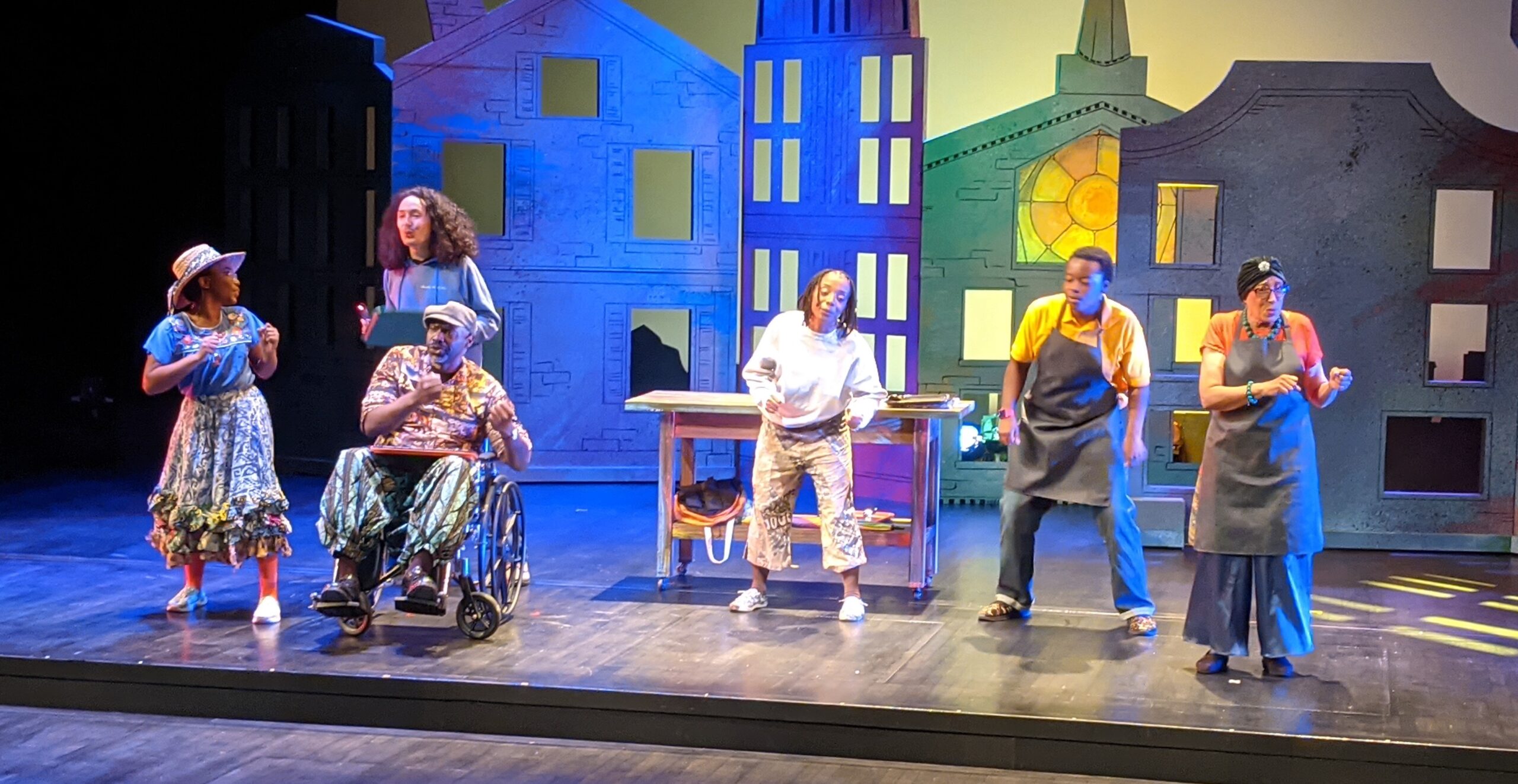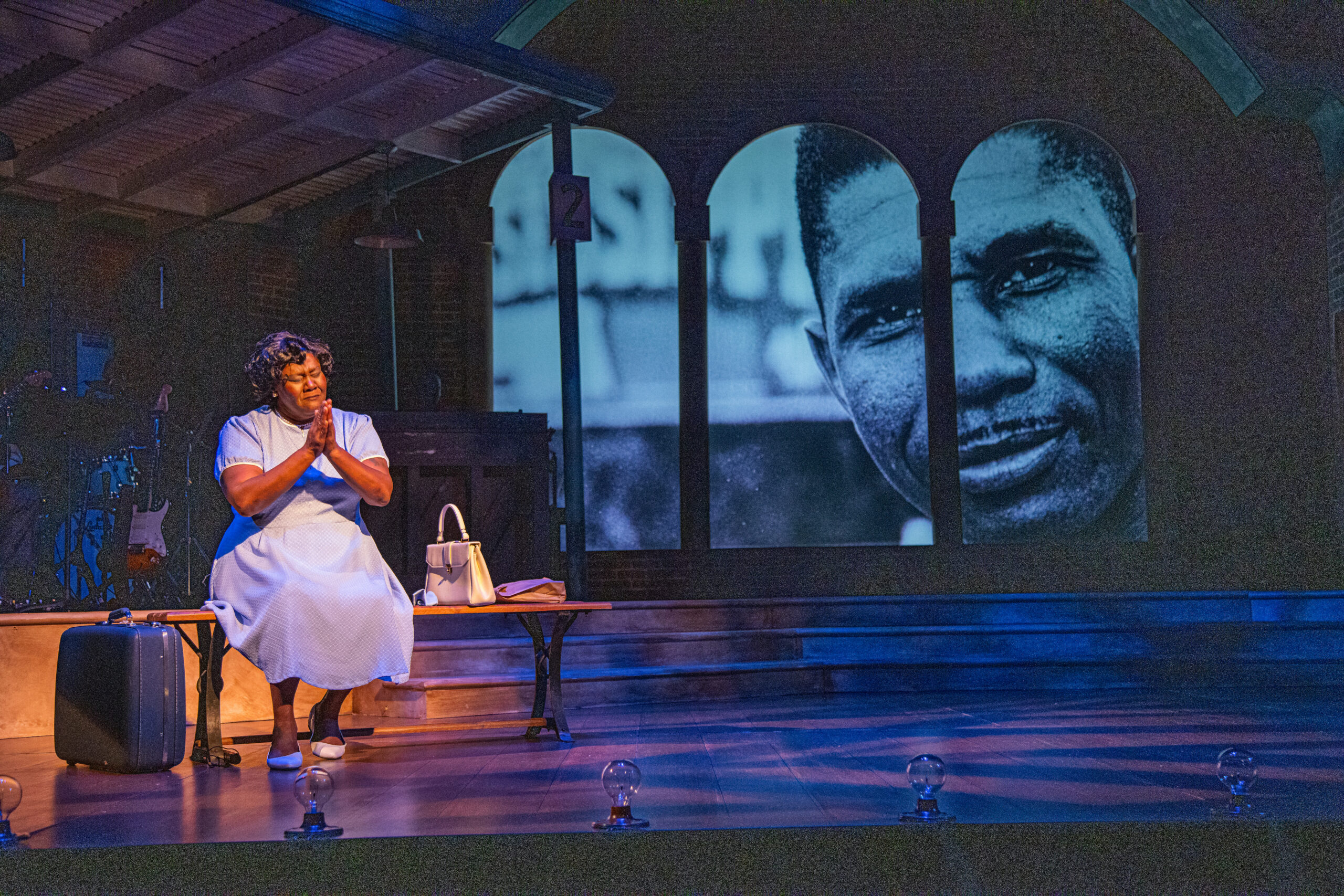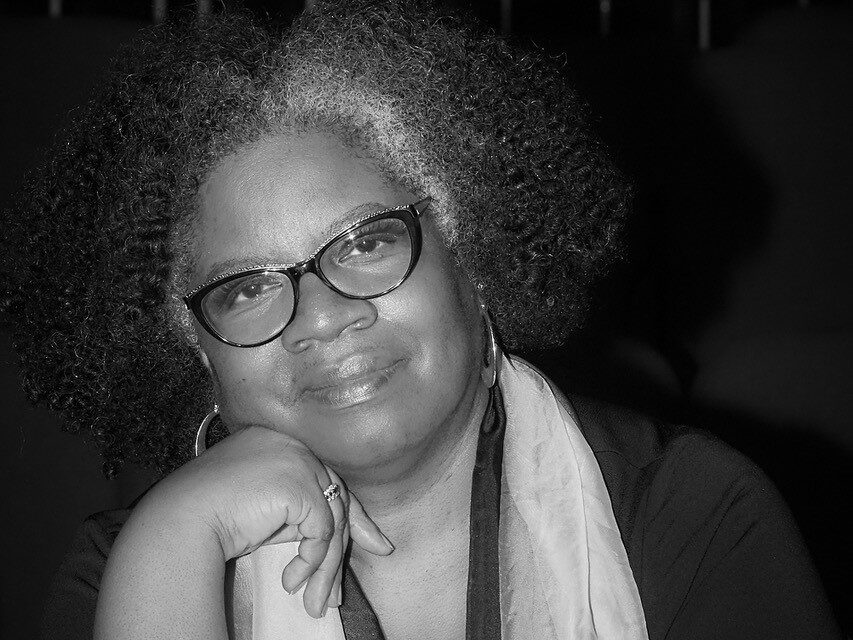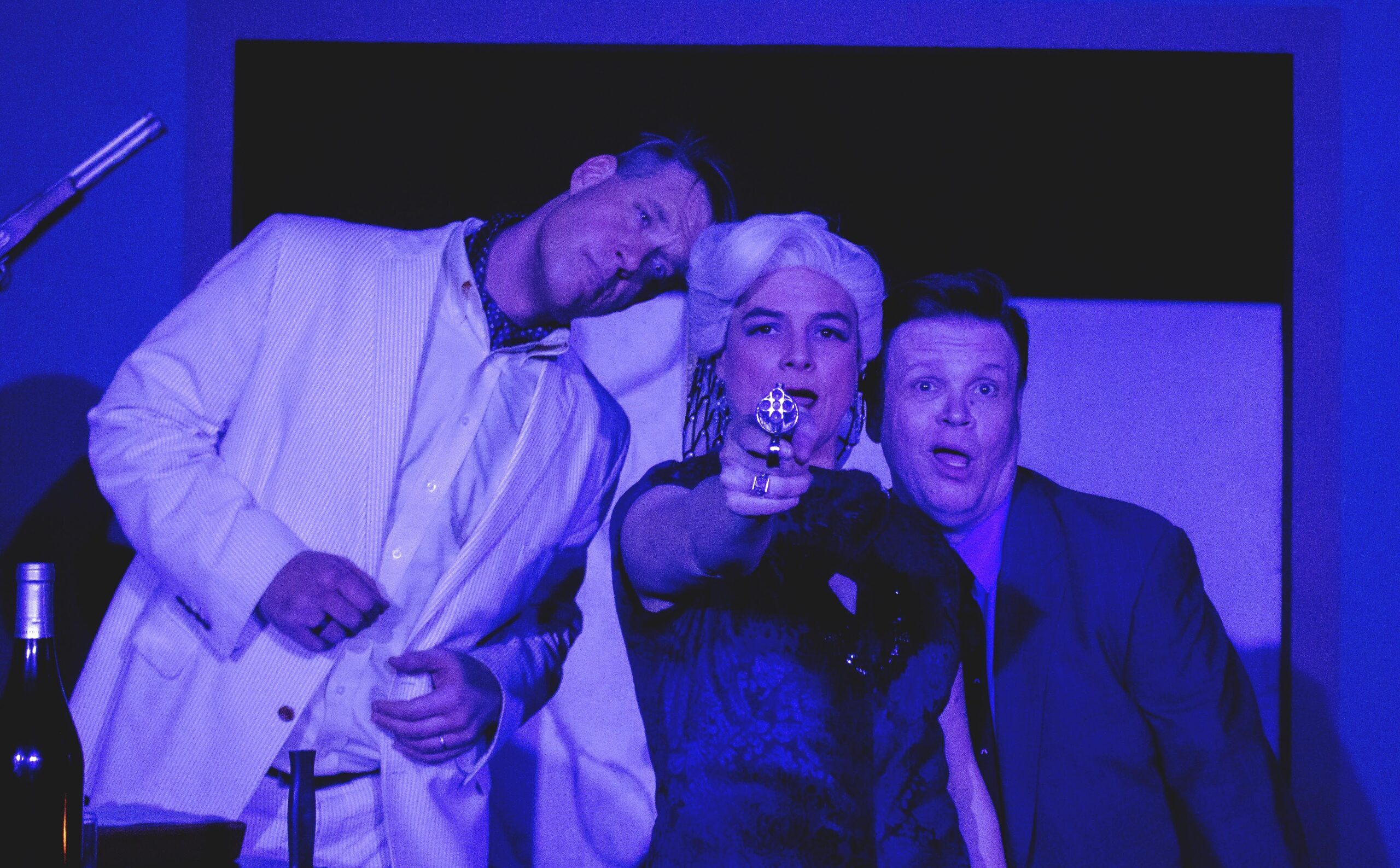A Conversation with Playwright Cheryl L. West
Interview by Keith Waits
Entire contents are copyright © 2022 by Keith Waits, All rights reserved.
Just a couple of days after Cheryl L. West‘s new play Fannie: The Music and Life of Fannie Lou Hamer opened at Actors Theatre, Stage One Family Theatre gave the first public performances of a new production of Last Stop on Market Street, a musical for children for which she wrote the book in 2015.
A co-commision by Seattle Reo and the Goodman Theatre in Chicago, Fannie was developed as a full length show but the pandemic forced an abbreviated edition that could travel and be performed outside during COVID restrictions. First suggested by the Goodman Theatre, who took the production into nine different Chicago area parks. That version was stagedin seven different cities, but recently the complete play that West intended has been featured by Seattle Rep and now Actors Theatre of Louisville.
West had heard of Hamer in school but knew very little. While researching another idea from the Civil Rights era she came across this line describing her: “Whenever she sang, there was not a dry eye in the house,” she knew she had found her next subject.
As West began researching Fannie Lou Hamer she discovered a rich history that she was able to realize fully after meeting several people in the cities where the play was produced who knew and had worked with Hamer. She learned how Hamer didn’t have a lot of money so she would pay with bushels of greens, how forceful she could be despite her diminutive stature, her favorite scripture, now quoted in the play. “It kind of made me feel like we got it right.”
“As a writer its my mission to write about unsung heroes and people who helped me on my own courage journey. She never quit, she never gave up. She came along in my life at a time when I needed that message so I feel very blessed to tell this story.”
One of the aspects of the work of West and other Black writers thaht is so crucial is that telling the stories of Civil Rights activists like Fannie Lou Hamer is that those who knew her, those “witnesses” as West calls them are ageing. Some have already left us. So the work of documenting their lives must be accomplished NOW. And the message resonates every bit as much as it did 60 years ago.
“Look at what they are trying to do with voting rights,” explains West, “look at what they are trying to do with repression right now. Everything that was happening THEN, we’re back there NOW!. She didn’t get to vote until she was 44 years old. She didn’t even know she had a right to vote”
“In Chicago, where we first did the play, people were feeling cynical during that last election, feeling like what’s the use, and in the play she talks about how important is that people died so we could have that right, so we cannot be complacent, we cannot take it for granted. We have a duty to all of those people.”
Still, we have seen many stories told of civil rights leaders, but the most familiar are usually men. “It’s also important to recognize that the women who put their lives on the line in this struggle have largely been ignored in our history books. We know about all of the men, but women were also there too.” West believes their sacrifice must also be recognized: “Fannie Lou Hamer was beat within an inch of her life for that struggle.”
“Fannie Lou Hamer was also forcibly sterilzed, it was so common in Mississippi they called it the ‘Mississippi Apendectomy’ because they didn’t want to see more Black babies that they had to take care of. The women would enter the hospital for some benign procedure and not be told what was happening. She was one of those women.”
For all of that darkness and repression, West’s play is not a downer. “Her resilience is inspiring, and I think we are all looking for that right now. She suffered all of that, but look at her power. Is there some clue for me about how to do that?”
“We don’t see the true character of a person when they get knocked down, it’s how they get back up. That is what determines our character. That is what determines our testimony.”


Two Hearts Media
Across the street from Actors Theatre, Stage One Family Theatre is running public performances of Last Stop on Market Street. West adapted the children’s book by Matt de la Peña to be the basis of a musical, with songs by Motown legend Lamont Dozier and his son Paris Ray Dozier.
“It was my honor and joy to work with and learn from him, and his son and I are collaborating on another project for the future.” The musical has been produced several time, including at South Coast Rep, Metro Theatre, St. Louis, and Oregon Children’s Theatre.
In conversation, West is gentle and soft-spoken, as congenial as any neighbor, but her writing stands in sharp contrast to that demeanor. “My first play, Before It Hits Home, was about a Black family’s response to AIDS, and it put me on the map. But I took such heat for that play, because back then people said I shouldn’t even have ‘Black’ and ‘AIDS’ in the same sentence. It was first produced at Arena Stage and there was a bomb threat! There was just so much criticism!”
West’s calendar for the immediate future is very full, with other productions of both of these plays, and a new piece about the legendary Sister Rosetta Tharp, one of the pioneers of a sound that would eventually be called rock and roll, Shout, Sister, Shout! Is preparing to open at Ford’s Theatre in Washington, D.C. West is currently preparing a revival of Broadway-bound Jar the Floor, a play she wrote 30 years ago, and she is working on commissions for Oregon Shakespeare Festival, LaJolla Playhouse, Arena Stage, and Seattle Rep.
“I love what I do, and I’m just gonna keep doing it the best I know how!”
You can see Fannie: The Music And Life Of Fannie Lou Hamer through October 23, 2022 at Actors Theatre
And Last Stop On Market Street on October 22 and 29 at Stage One Children’s Theatre
Keith Waits is a native of Louisville who works at Louisville Visual Art during the days, including being the host of LVA’s Artebella On The Radio on WXOX 97.1 FM / ARTxFM.com, but spends most of his evenings indulging his taste for theatre, music and visual arts. His work has appeared in LEO Weekly, Pure Uncut Candy, TheatreLouisville, and Louisville Mojo. He is now Managing Editor for Arts-Louisville.com.




